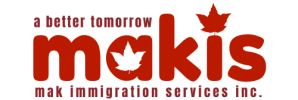Start-Up Visa
Canada is looking for talented entrepreneurs interested in starting businesses that will stimulate the Canadian economy while creating employment opportunities for its residents. Canada’s start-up visa program, including a step-by-step guide to the application process, can help you immigrate to Canada through the start-up program.
About Start-Up Visa
Canada’s start-up visa program allows entrepreneurs to immigrate to Canada to establish a new business. Immigrant entrepreneurs must demonstrate that their business is original, will create new jobs for Canadians, and can compete globally.
The list of requirements as set by Canadian immigration for entrepreneurs to apply for permanent residence in Canada under the Start-up visa program:
- Foreign nationals must get a Letter of Support or investment commitment from one of the Designated Organizations in Canada;
- Each foreign national must own at least 10% of the shares in the start-up. Foreign nationals and their Designated Organization must jointly have more than 50% of the total shares (voting rights) in the start-up venture
- Each applicant must meet the minimum English or French language skill at CLB level 5
- Each applicant must have sufficient funds to settle in Canada (depending on the size of the applicant’s family)
In addition to the above, to be successful in this program, entrepreneurs should also be prepared to meet the following essential criteria:
- Ownership of an innovative or successful business that is generating scalable and sustainable revenue or has strong market validation
- Access to capital fund your start-up venture, usually around $200,000 at a minimum per applicant
- Have highly specialized knowledge or unique experience in your field or have solid managerial experience; and
- Have an upper-intermediate English and/or French language skill(s)
You must provide proof (Commitment Certificate and Letter of Support) that a designated organization will support your business. These documents will cover the relevant details of your arrangement with one or multiple designated organizations and are essential to your startup visa application.
Instead, those who meet the eligibility requirements must secure a minimum of $75,000 from a Canadian angel investor or a minimum of $200,000 from a Canadian venture capital fund recognized by the government of Canada. Investment capital is optional if the applicant is accepted into a recognized Canadian business incubator.
You must run your firm for a certain amount after arriving in Canada as a foreign worker before becoming a permanent resident. The duration of the operation depends on the kind of business you have (i.e., whether it is new or existing) and the type of work permit you have.
Remember that your company does not have to make a certain amount of money or be successful. The Federal Court defined viability as “having adequate revenue to cover the operational costs and pay employee wages”; yet, your firm must be viable.
In general, your business must be active before you can apply for permanent residence, which means that:
- Your business sells goods or services to actual and existing customers in Canada or globally.
- You have all licenses and permits necessary to operate in Canada.
- Your business has a physical location within Canada, and,
- Canadian employees are working for your company.
- You are making progress toward the execution of your business plan.
- You are currently performing (or intend to perform) executive or senior managerial duties in your business (you should not act as an owner-operator of your business, but instead manage your company through managers)
Once your Canadian business is active, you can apply for permanent residency as your business manager. You have to meet additional criteria to become eligible for permanent residence, which often includes the following:
- A score of at least CLB 7 for your language skills
- Having post-secondary education
- Having no criminal record or ongoing severe medical issues
FAQ for Start-Up Visa
The New Brunswick Provincial Nominee Program (NBPNP) is a program that allows New Brunswick to nominate immigrants to fill the economic and labour market needs of the province.
Yes, New Brunswick has an immigration stream aligned with the federal Express Entry immigration selection system, also referred to as an enhanced Express Entry stream. This stream is called New Brunswick Express Entry Stream. By receiving an enhanced provincial nomination from this stream, candidates receive an extra 600 Comprehensive Ranking System (CRS) points, resulting in an Invitation To Apply (ITA) for permanent residence being issued at a subsequent draw from the Express Entry pool.
Applying to the NBPNP is a two-step process. Candidates interested in living and working permanently in New Brunswick should first review the different NBPNP streams to determine if they are eligible.
Step 1: Once a complete application is submitted along with all supporting documentation, the processing time for eligible applications can be up to three months or more.
Step 2: Apply to Immigration, Refugees and Citizenship Canada (IRCC) for a permanent resident visa.
Within six months of receiving the nominee certificate, applicants are required to apply to IRCC in order to receive a permanent resident visa. Applicants, along with their spouse/common-law partner and dependents, if applicable, must meet all requirements for medical, security and criminal admissibility. IRCC has the final authority to issue a permanent resident visa.
As part of any PNP application, applicants are required to submit a Settlement Plan indicating why they wish to live in the province and how they intend to settle. Applicants are also required to sign an ‘intention to reside’ document with their application. That being said, the Canadian Charter of Rights and Freedoms ensures that all Canadian citizens and permanent residents are allowed to work and reside in any location across Canada. Once an individual obtains Canadian permanent residence, he or she has the right to work and reside in any Canadian province or territory.
